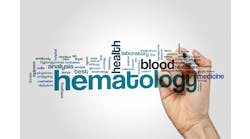Lessons Specialty Societies Have Learned Spinning Up COVID Registries
When the pandemic struck, clinicians struggled to cope with treating a virus nobody had ever seen before. Medical societies responded by creating or amending data registries to gather and disseminate COVID information as quickly as they could. “In the early stages of the pandemic, we were flying blind,” said Clifford Ko, M.D., director of the division of research and optimal patient care at the American College of Surgeons, which rapidly built a registry tool to share with hospitals. Ko and other society executives recently discussed lessons learned from the scramble to gather COVID data.
The ACS has a long history of developing and maintaining clinical data registries for trauma, cancer, surgical quality improvement for adult and pediatric hospitals, and bariatric surgery.
Ko, who also serves as vice chair and professor of surgery and health services at the University of California, Los Angeles, was speaking during a webinar put on by the Council of Medical Specialty Societies. He said that at the start of the pandemic there were reports of extremely poor surgical outcomes. The mortality rates were from three to five times higher in elective surgery in patients who were known to have COVID or who were not known to have COVID and showed symptoms post-operatively.
“The mortality rates were sky-high and that really scared a lot of folks around the world,” Ko said. Also, there was so much that was unknown. “We were hearing from many of our hospitals they did not know how they were doing with COVID,” he added. They didn’t know what was helpful or not in terms of treatment, and who to test and who not to test, and didn’t have outcomes data.
“We had multiple requests for help with data collection to help them see how they were doing,” Ko said. “To be honest, in the beginning the college’s thinking was that there were going to be a lot of efforts in this area, and that we should stay focused on surgery and rely on others, but hospitals were telling us they needed data now, so we very quickly did two things: We put COVID variables into our current registries and we launched a basic COVID registry for hospitals. We heard these requests in the last week of March, and by second or third week of April we launched this registry.”
The ACS COVID-19 Registry was developed with the input of several experts who are currently treating COVID-19 patients. Included data variables cover demographics, severity predictors, admission information, hospitalization information, therapies used, and discharge information. So far, the registry has data on 10,000 patients from 30 states. The hospital registrars who typically enter data into surgical registries have volunteered to enter this data.
Looking back, Ko said that there are some basic questions specialty societies need to ask about their COVID registries. Are the data good enough or enough for clinical care information and epidemiological information? Is it adequate for research investigations? Is it helping clinicians improve? Are we making gains in the fight against COVID? “I am not sure we are making huge gains, particularly if we agree that the pandemic is ongoing and worsening in many areas,” he said. “We have to ask ourselves if we could be doing something better. First we have to ask ourselves why are we collecting the data and what are the questions we are trying to answer now and what are potential questions we will need to answer in the future?”
ASCO’s COVID Registry
Elizabeth Garrett-Mayer, Ph.D., is director of the Division of Biostatistics and Research Data Governance, Center for Research and Analytics (CENTRA) at the American Society of Clinical Oncology (ASCO). She said that in order to better understand the impact on oncology practices and their patients, ASCO launched a registry of community oncology practices on April 10. “We now have 41 practices in 23 states,” she said, and 175 patients have data submitted. ASCO’s objectives are to analyze distributions of symptoms and severity of COVID-19 among people with cancer; examine the impact of COVID-19 on cancer treatment and outcomes; and document adaptations of cancer care to the pandemic.
“We are very aware that this is dynamic.” Garrett-Mayer stressed. “We recognize that the way we set this up, we would not be able to foresee things coming down the road. We formed a steering group to help us figure out how to move forward and make changes to the data collected.”
“We have tried to be transparent as possible about how we are collecting data,” Garrett-Mayer added. “We are having conversations with the National Cancer Institute and other groups on their registries for cancer patients, and we plan to release reports publicly periodically starting in September. We plan to make the entire data set available to other researchers next year.”
Society of Critical Care Medicine’s VIRUS Registry
Also speaking on the panel was Greg Martin, M.D., professor of pulmonary and critical care at Emory University School of Medicine and president-elect of the Society of Critical Care Medicine (SCCM).
SCCM’s COVID registry is called VIRUS, short for Viral Infection and Respiratory Illness Universal Study. VIRUS is a cross-sectional, observational study and registry of adult and pediatric patients who were admitted to a hospital with COVID-19 confirmed disease or high clinical suspicion. “We have 170 sites from the U.S., but also in the Middle East and Asia, and we are bringing on more sites all the time,” Martin said. There are currently approximately 15,000 patients in the registry. “We are working to facilitate more and more electronic data capture.”
Martin said the primary aims were to create a real time COVID-19 registry of current ICU and hospital care patterns to allow evaluation of safety and observational effectiveness of COVID-19 practices, and to determine practice variations across different hospitals.
Their hypothesis is that the registry will be essential for near-real time observational comparative effectiveness studies to learn effective treatment strategies and/or provide meaningful hypotheses for clinical trials.
Another goal, he said, is to develop a prototype of an EHR-based automated collection of standardized data elements for testing in two community and two academic hospitals equipped with a standard EHR. Before the pandemic struck, Martin added, SCCM had been working on creating a Critical Care Data Dictionary (C2D2), to harmonize critical data definitions for rapid deployment and data collection. The hypothesis is that EHR-based automated collection will be feasible, valid and reliable (compared to manual data entry) with lower workload of data collection.
The speakers mentioned the challenges involved in spinning up registries during a crisis — and having to do much of the work manually — rather than having the electronic data capture tools in place between cycles of emergency. (Two of the registries use the open source REDCap survey tool developed at Vanderbilt University.) They also touched on the potential benefits (and challenges) of integrating data from different societies’ registries.


